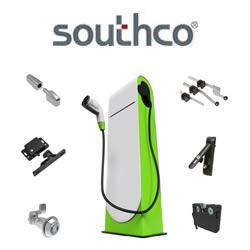Huge growth potential for the Fuel Cells Market due to energy efficiency and environmental concerns
Fuel cells will play a pivotal role in the European energy industry in the future due to their high electrical efficiencies as well as their environment-friendly profile
LONDON - January 18, 2007 - Consistent R&D efforts are expected to yield dividends as fuel cells emerge as the preferred distributed generation technology, and to play a dominant role in redefining the European energy industry in the future. Since combined heat and power (CHP)-based fuel cell systems offer significant prospects for market expansion, current R&D efforts are focused on attaining technological breakthroughs that will result in enhanced product offerings at competitive price levels.
Frost & Sullivan (http://www.energy.frost.com) finds that the European Stationary Fuel Cells Market is expected to achieve commercialisation by the end of this decade and is estimated to reach $197.00 million in 2010.
"Fuel cells will play a pivotal role in the European energy industry in the future due to their high electrical efficiencies as well as their environment-friendly profile," notes Frost & Sullivan Research Analyst Hema Sarathy. "Threats over the security of fuel supply coupled with increasing concern about air pollution and emission control are strengthening the case in favour of fuel cells as a preferred form of distributed generation technology."
Fuel cells show electrical efficiencies of 40 to 49 per cent in comparison with other competing technologies, which display electrical efficiencies close to 30 to 35 per cent. In a cogeneration mode, fuel cell systems can achieve an electrical efficiency of close to 80 to 85 per cent. Hence, higher efficiencies and improved benefits will result in CHP-based fuel cell systems leading the expansion of the stationary fuel cells market during the initial years of commercialisation.
Currently, major concerns revolve around enhancing the reliability and durability of fuel cells. The lack of robustness in current fuel cell systems is affecting their performance in comparison to traditional technologies. Moreover, high capital and operating costs are proving a major deterrent to commercialisation with customers awaiting cost reductions for an enhanced value proposition. Hence, the adoption of fuel cell systems is doubtful without an improved and more competitive product and price offering.
"The stationary fuel cell industry is currently in a demonstration and a product validation stage, where the focus is not only on product development, but also on understanding the requirements of customers in order to enhance the product solution," says Ms. Sarathy. "The industry is looking forward to strategic alliances and partnerships of system manufacturers with utilities and component suppliers to develop a complete fuel cell product portfolio matching customer needs."
Product innovations coupled with process improvements will be critical to achieving increased robustness and lowered costs. Focussed research into new materials, improved manufacturing processes and augmented process capabilities will enable a smooth transition from the current demonstration, product development phase to a more commercial stage.
If you are interested in a virtual brochure, which provides manufacturers, end users, and other industry participants with an overview of the latest analysis of the European Stationary Fuel Cells Market, then send an e-mail to Chiara Carella - Corporate Communications at chiara.carella@frost.com with your full name, company name, title, telephone number, e-mail address, city, state, and country. We will send you the information through email upon receipt of the above information.
European Stationary Fuel Cells Market is part of the Energy and Power Subscription, which also includes research in the following markets: World Micro Fuel Cell Markets for Consumer Portable Devices, Fuel Cells for Stationary Power - Global Trends and Technology Developments, World Micro Fuel Cell Markets for Consumer Portable Devices and World Advances in Micro Fuel Cell Technology. All research included in subscriptions provide detailed market opportunities and industry trends that have been evaluated following extensive interviews with market participants. Interviews with the press are available.
Frost & Sullivan, a global growth consulting company, has been partnering with clients to support the development of innovative strategies for more than 40 years. The company's industry expertise integrates growth consulting, growth partnership services, and corporate management training to identify and develop opportunities. Frost & Sullivan serves an extensive clientele that includes Global 1000 companies, emerging companies, and the investment community by providing comprehensive industry coverage that reflects a unique global perspective and combines ongoing analysis of markets, technologies, econometrics, and demographics. For more information, visit www.frost.com
European Stationary Fuel Cells Market
M038 -14
Contact:
Chiara Carella
Corporate Communications - Europe
P: +44 (0) 20 7343 8314
F: +44 (0) 20 7730 3343
E: chiara.carella@frost.com
Danielle White
Corporate Communications - Americas
P: +1.210.247.2403
F: +1.210.348.1003
e) dwhite@frost.com
Donna Jeremiah
Corporate Communications - Asia Pacific
P: +603 6304 5832
F: +603 6201 7402
E: djeremiah@frost.com
Samantha Unnikrishnan
Corporate Communications - India
P: +91 (0) 44 42044667
F: +91 (0) 44 24314264
E: sunnikrishnan@frost.com
Sharmin Jassal
Corporate Communications - Australia
P: +61 2 8247 8900
E: sjassal@frost.com
www.frost.com
List of keywords in this press release: fuel cells, distributed generation technology, European energy industry, Europe, energy industry, cogeneration, combined heat and power (CHP)-based fuel cell systems, combined heat and power, CHP, fuel cell systems, European stationary fuel cells market, stationary fuel cells, market, electrical efficiencies, environment-friendly profile, fuel supply, air pollution, emission control, CHP-based fuel cell systems, fuel cell product portfolio
Featured Product

